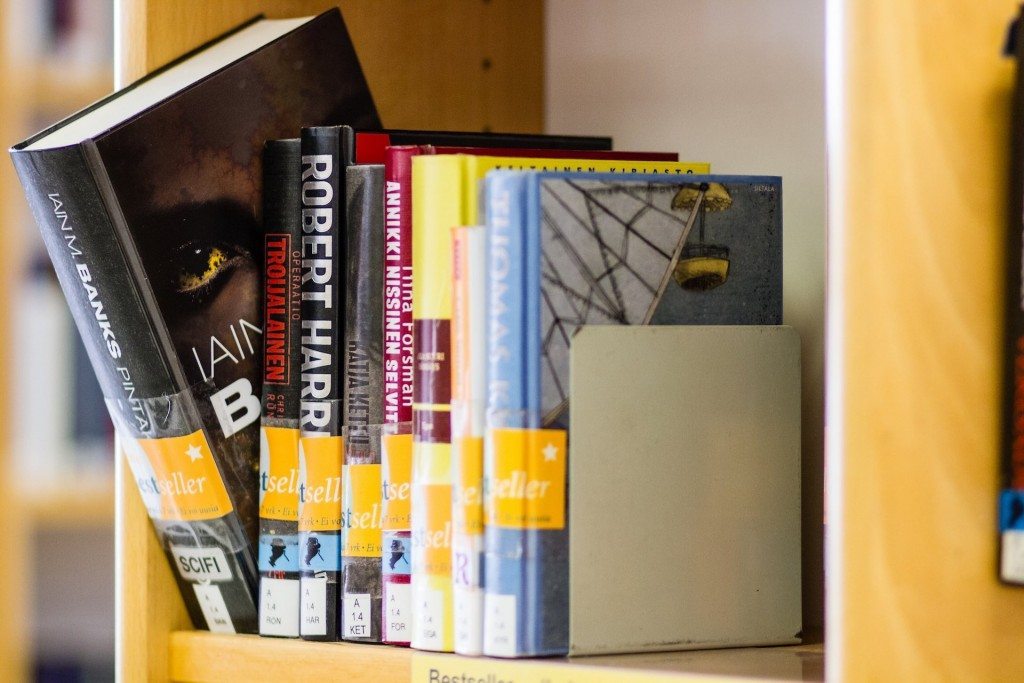Today’s article is written by Suzannah Windsor Freeman, founding editor.
Whatever the topic of your blog, you’ve probably dreamt about interviewing an authority in your field.
Once Write It Sideways was established with a growing community of readers, I wanted to interview published authors who could share their advice and experience. To date, I’ve conducted more than fifteen email interviews with published authors and literary agents.
A while back, I contacted New York Times bestselling author Allison Winn Scotch (The Song Remains the Same, Time of My Life, The One That I Want). At the time, I knew Allison was about to release a novel, so I figured she would be actively promoting it. By following her on Twitter, I also discovered she was granting interview opportunities.
Within 48 hours of our initial contact, our interview was completed.
Since then, I’ve also interviewed authors like Julie Buxbaum (The Opposite of Love) and Therese Walsh (The Last Will of Moira Leahy), and I even got an exclusive statement from mega-bestseller Jodi Picoult (Sing You Home).
Want to score an email interview with a bestselling author, top blogger, or authority in your niche? These seven tips are key:
1. Do Your Research
Don’t just fire off interview requests to random people. Show them you know who they are and what they do, and express why the interview is important to you.
Subscribe to their blogs, check out their websites, follow them on Twitter. Pay attention to what’s going on in their world so you don’t request an interview at an inconvenient time.
2. Think About Benefits for the Author
Blog interviews help promote authors’ writing, but if your blog has very few subscribers or unique visitors, your interview won’t be particularly beneficial. Before you put out your feelers, make sure you have a respectable number of subscribers—at least a few hundred.
You can provide added benefit to the author if you read one of their books and post a review on your blog.
3. Work Your Way Up
You might not want to head straight for the top on your first try. I began by interviewing some debut authors who were in the process of promoting their books. They were grateful for the interviews, and it was nice to be able to give them a bit of exposure.
After you’ve interviewed a few lesser-known people, work up to more experienced, more authoritative sources.
In general, if there’s a personal email address available on the author’s website, your chances of acceptance are far greater. If only the contact details of an agent or publicist are available, you’ll want to build your blog to at least a few thousand subscribers before requesting an interview through the author’s representative.
4. Make a Connection
While you shouldn’t gush all over your interviewee, do be prepared to show them you know what they’re all about.
Something simple like, “I really loved your article on…,” or “I recently read one of your books,” or “I hope your [insert current project] is going well,” shows you’ve done your homework.
But be honest; don’t say you read their book if you didn’t.
5. Be Professional
You don’t have to be overly formal, but when approaching someone for an interview, do write professionally and proofread. Twice.
Use common sense when addressing someone. In the case of Allison Winn Scotch, I began my email with “Hi Allison,” because she’s young and maintains a down-to-earth persona. A letter addressed to “Dear Ms. Winn Scotch” would have sounded overly formal.
If, however, I were requesting an interview from Margaret Atwood, I would most certainly begin with “Dear Ms. Atwood.”
6. Ask Specific Questions
When you email to request an interview, include the list of questions. How will the interviewee be sure they want to answer your questions if they don’t know what the questions are?
Make sure your questions are specific to the interviewee—not a random list anyone could answer. You may have a couple of signature questions you like to ask everyone, but most questions should be written specifically for the individual.
I also like to include a variety of questions and let them choose a small number of the ones they’d most like to answer. You might pose 10 questions and ask them to choose five.
7. Give Them an ‘Out’
The last thing you want to do is make authors bad if they can’t answer your questions or just don’t have time.
Rather than playing the pity card (“I know you probably don’t have time to do an interview because you’re so important,” or “My blog only has two subscribers, so I get that it’s probably not worth your time”), I usually just say something along the lines of, “I know you’re busy promoting your book at the moment, so I understand if you don’t have time to respond.”
This lets the person know they’re free to decline the interview without you falling to pieces and telling everyone on Twitter how stuck up they are.
Wrapping It All Up
Before wrapping up correspondence with an interviewee, I like to ask for their preferred posting date for the interview. While it’s not strictly necessary, it does show the writer that you want to help them promote their book or product during a time frame that works for them. For example, they might prefer that you post their interview during their book launch.
Provide a definite air date for their interview, but also send a personal message on Twitter or a quick email when the interview actually goes live. This gives you an opportunity to thank them once again for all their time and effort.
Ready to score your own interview with a big-name author or VIP?
Watch your inbox, Stephen King. I’ll be in touch soon.
